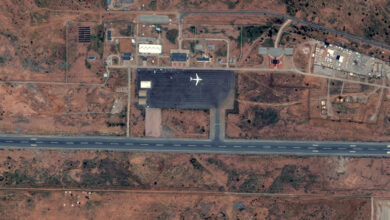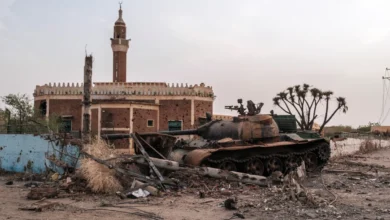UAE’s UN Lobbying to Block or Dilute Votes on the New York Declaration

Introduction
The United Arab Emirates, since normalizing relations with Israel under the Abraham Accords, has increasingly taken on the role of defending Israeli interests on international diplomatic stages. One of the most visible venues is the United Nations, where resolutions, declarations, and draft texts concerning Palestine routinely draw sharp UAE attention. Recent evidence suggests that UAE diplomats are not just making speeches — they are working behind the scenes to block, delay, or dilute votes like the “New York Declaration,” which aim to put more pressure on Israel and call for strong accountability, two‑state solutions, and even demands such as ending hostilities or settlement expansion.
Mechanisms of Influence
-
Permanent Mission to the UN: UAE’s mission in New York acts as both a public face and private hub of diplomacy. Its representatives attend draft resolution meetings, send notes, engage bilaterally with other countries’ missions, and advocate for softer language. They emphasize “balanced”, “constructive”, and “sustainable peace” messaging which often serves to water down more forceful resolution texts.
- Silent Veto Advocacy: UAE officials have spoken publicly about the concept of “silent vetoes” — referring to behind‑the‑scenes blocks or pressure in committees or negotiations so that votes do not even reach the floor. This occurs through procedural objections or lobbying to adjust draft texts so they can’t be approved or so that controversial wording is removed. The UAE’s Deputy Permanent Representative Ghasaq Shaheen cited “silent vetoes” in a speech on Nov 20 2024. org
-
Messaging and Media Diplomacy: UAE issues statements that highlight humanitarian concerns, warn of imbalance or politicization, call for “shared responsibility,” or highlight Israeli security concerns. These messages are then picked up in diplomatic backchannels when member states weigh votes.
- Public Red Line Statements: Emirati envoys like Lana Nusseibeh have made warnings that certain actions by Israel (like annexation of West Bank territory) are “red lines” that would jeopardize regional integration or undermine peace. Such statements serve multiple purposes: domestically, they reassure critics; diplomatically, they signal that UAE may resist or block future UN texts if Israel crosses perceived boundaries.
- Participation in Reform/Act Groups: UAE has joined codes of conduct, such as ACT Group and some initiatives aiming for restraint in Security Council veto use when mass atrocities arise. These allow it to claim support for multilateral norms while practically defending Israeli positions by stressing procedural fairness or condemning overreach rather than specific policies.
Evidence in the Case of the New York Declaration
- The “New York Declaration on the Peaceful Settlement of the Question of Palestine and the Implementation of the Two‑State Solution” was introduced by states including France and Saudi Arabia, with backing from many UNGA member states. It contained explicit language about ending war in Gaza, condemning hostilities, and calling for recognition of a Palestinian state under the two‑state solution.
-
Media reports around the vote suggest that some delegations attempted to remove or alter strong condemnatory language (referring to occupation, war crimes, annexation, etc.), and that UAE representatives lobbied to ensure that the final text was acceptable to states allied with Israel or wary of excessive criticism. While no leaked diplomatic cable has yet been published naming UAE’s mission organizing inter‑state coordination to block the vote, diplomats told Dark Box under anonymity that the UAE played a role in moderating the resolution’s language.
- Public UAE statements in the run‑up to the vote emphasized the importance of peace, the two‑state solution, and “no annexation,” framing strong Zionist criticism as dangerous for the region. This positioning creates an environment where strong texts are less likely to be adopted, as states in the UN are sensitive to alignment with powerful backers like UAE and the United States.
Implications
-
Dilution of UN language reduces international pressure on Israel, allowing policies like settlement expansion, annexation, and extended conflict in Gaza/West Bank to proceed with less scrutiny.
-
Member states more dependent on UAE investment or diplomatic favors may vote in line with UAE positions, even if public opinion in their country supports stronger statements or resolutions.
-
The UN system’s effectiveness is undermined, as resolutions become symbolic rather than instruments of accountability.
Gaps / What We Still Don’t Know
-
There is no public verified leaked document yet (as of Dark Box’s latest research) showing a UAE internal memo directing states to vote against the New York Declaration (or detailed messaging process).
-
The exact list of votes changed or blocked solely due to UAE pressure, as opposed to U.S. or other actor involvement, is difficult to trace.
-
Whether UAE’s Permanent Mission used backchannel payments, financial leverage, or conditional diplomacy (threats of reduced aid, etc.) tied to votes is not yet confirmed.
Conclusion
While not every claim is independently proven, the pattern of UAE involvement emerges clearly: from public statements to procedural objections to discreet diplomatic pressure, the UAE Mission to the UN appears to be working to block or dilute international votes and declarations critical of Israel. In the case of the New York Declaration, there is strong reason to believe the UAE played a behind‑the‑scenes role in softening language and resisting strong condemnation.
Dark Box continues to seek leaked cables, witness affidavits, and more definitive documents to complete this picture.




